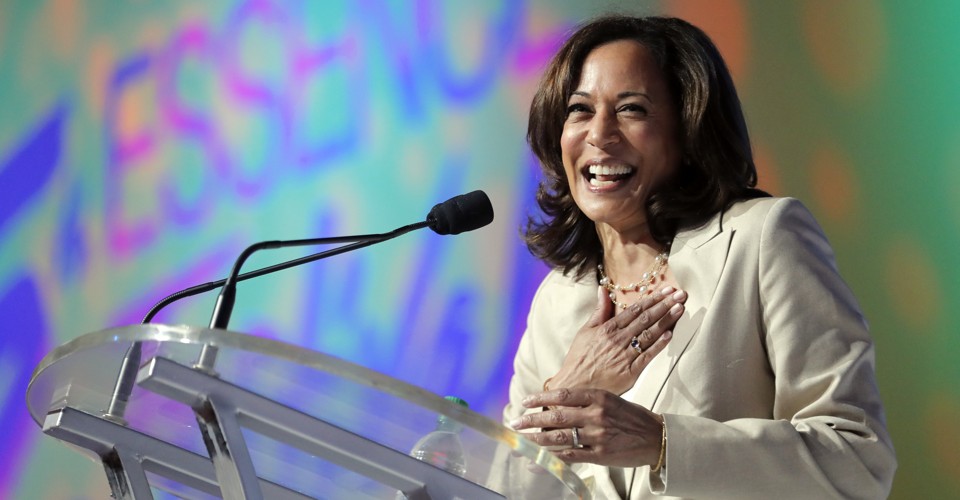Kamala Harris Comes Into Her Own - 4 minutes read
 Kamala Harris Surges as Black Women Sense Their Power
Kamala Harris Surges as Black Women Sense Their PowerTheodore R. Johnson: Kamala Harris knew what she was doing
“I think candidates have figured out that you need to speak to and hear from black women and go there as opposed to expecting them to come to you,” she told me during our interview.
Harris is the only black woman running for president, and just the second ever to be elected to the Senate. She also writes an online column for Essence called “Kamala’s Corner.” Yet it wasn’t foreordained that she would shine at the festival—nor is she guaranteed to win black women primary voters more generally.
Against a huge field of Democratic presidential candidates, Harris was polling in the single digits until late June, when, in the first round of debates, she went after front-runner Joe Biden over his stances on school integration via busing back in the 1970s and his wistful comments about being able to work with segregationist senators. When I asked her about the confrontation, Harris played it coy. “If the topic came up,” she said, “I planned on saying something.”
But in describing how much Biden’s comments had struck a nerve, she didn’t hold back. “I strongly disagree with coddling the reputations of people, who, if they had their way, would have excluded whole populations—in particular black people—of access to equal education in America,” she said.
Biden apologized for his remarks this past weekend in South Carolina, an early primary state where most Democratic voters are black. Meanwhile, Harris and others were making their case in New Orleans to black women in particular.
According to the U.S. Census Bureau, 55 percent of eligible black women voters cast ballots last November, which was six percentage points higher than the national turnout. And to Harris’ point, 70 percent of eligible black women voted in 2012—the highest turnout among all voting groups. It is impossible to envision any scenario in which a Democrat could win the nomination, much less the presidency, without considerable support from black women.
That politicians are developing a policy agenda specifically for black women speaks to their rising political power. Every candidate who took the stage at Essence pointed out that black women are paid 61 cents on the dollar that white men receive. Several cited the staggering maternal mortality rate for black women, who are three to four times more likely than white women to die during delivery or soon afterward. In certain parts of Mississippi, a 2014 study noted, the rate of maternal death for women of color exceeds that of sub-Saharan Africa.
“It’s time to build an America that recognizes the role that Black women play in their families and in the economy, that fairly values their work, and that delivers equal opportunity for everyone,” Elizabeth Warren declared in a column she wrote for Essence in preparation for her visit to the festival.
Source: Theatlantic.com
Powered by NewsAPI.org
Keywords:
Kamala Harris • Theodore Roosevelt • Lyndon B. Johnson • Kamala Harris • Candidate • Black people • United States Senate • United States presidential debates • Joe Biden • Desegregation busing • Racial segregation • Joe Biden • South Carolina • Primary election • U.S. state • Democratic Party (United States) • Harris County, Texas • New Orleans • Black people • United States Census Bureau • Harris Point • Democratic Party (United States) • Nomination • President of the United States • Politics • Policy • Power (social and political) • White people • Black people • White people • Mississippi • Mortality rate • Maternal death • Person of color • Sub-Saharan Africa • Americas • Economy • Equal opportunity • Elizabeth Warren •